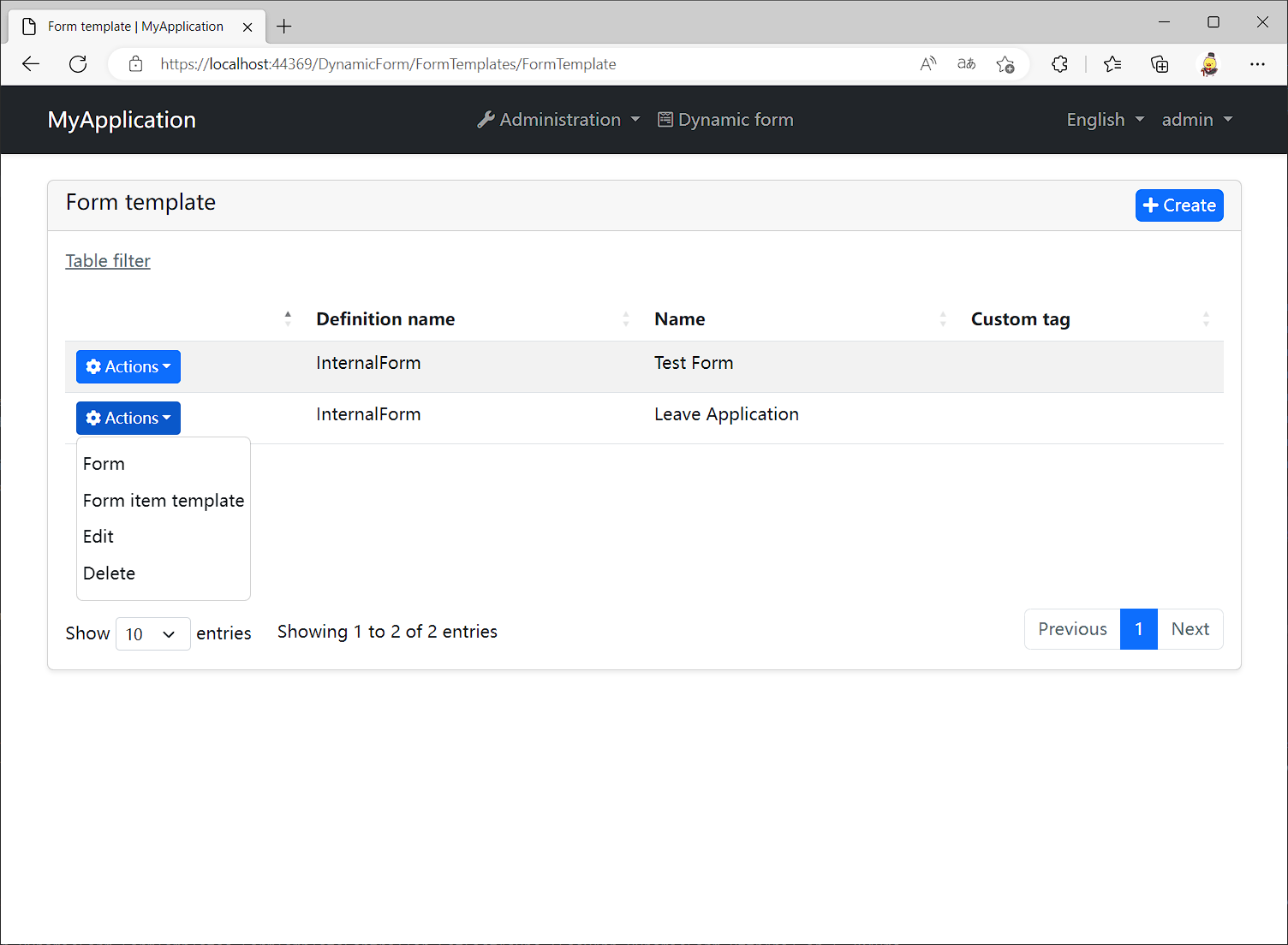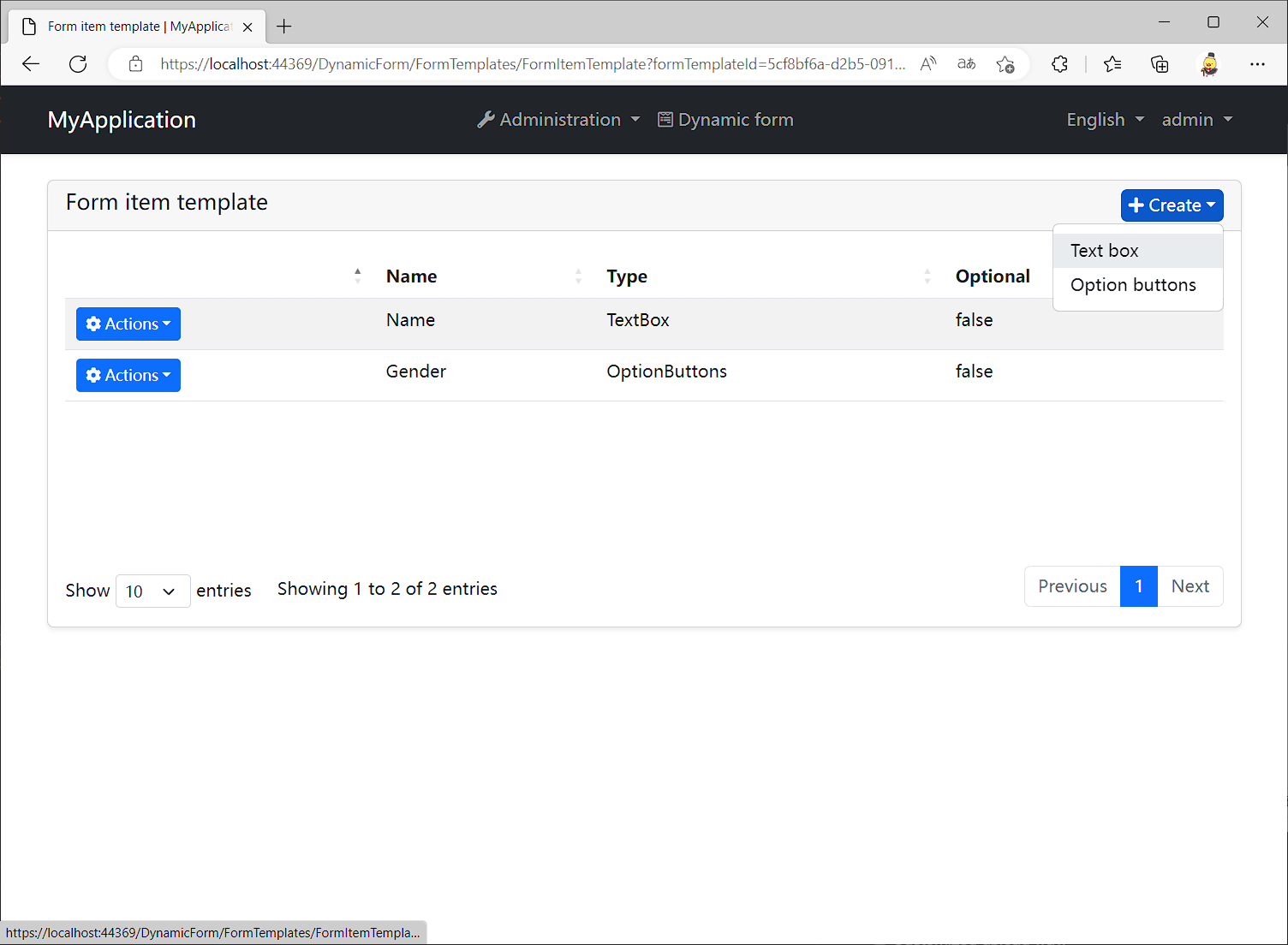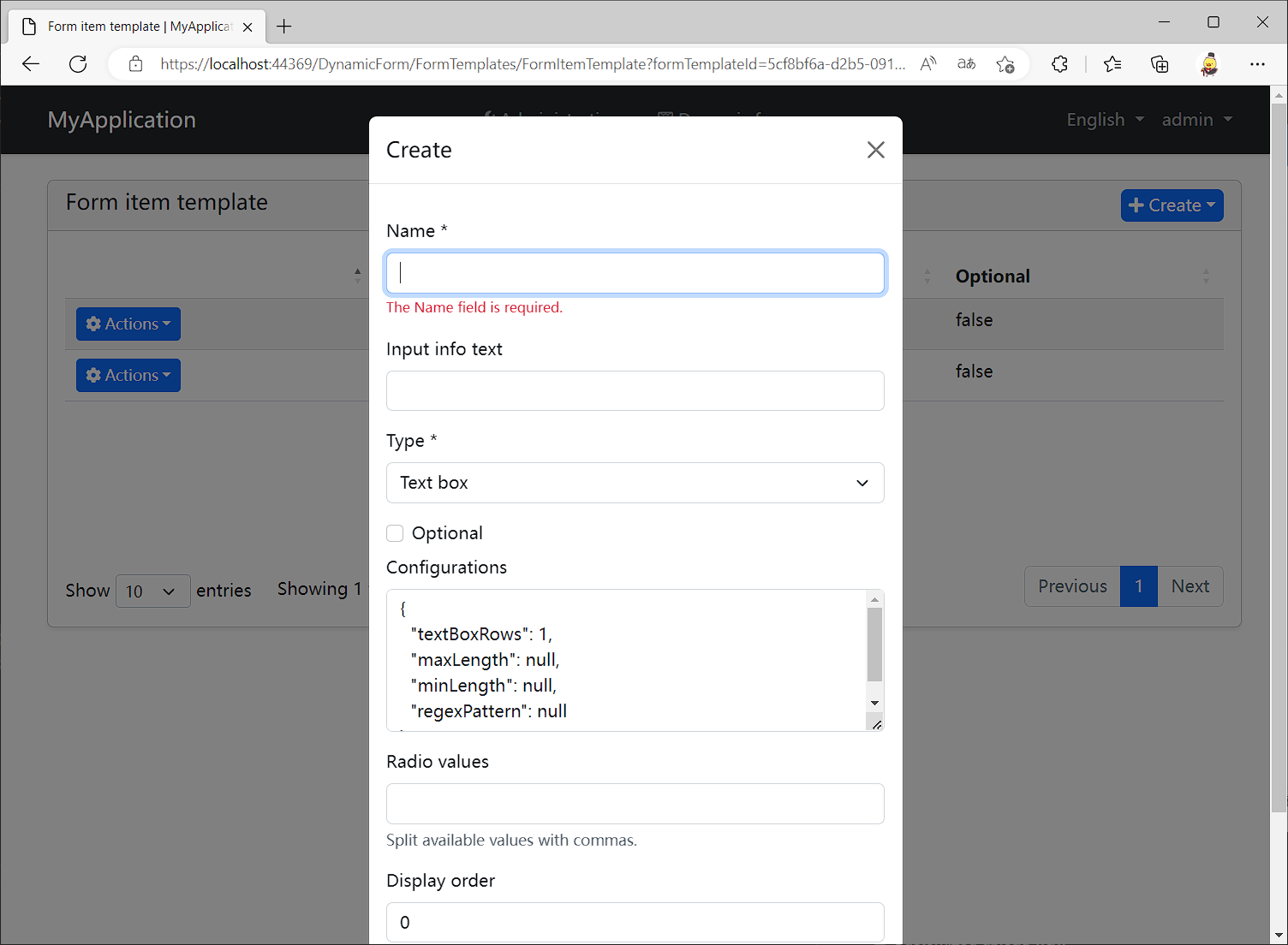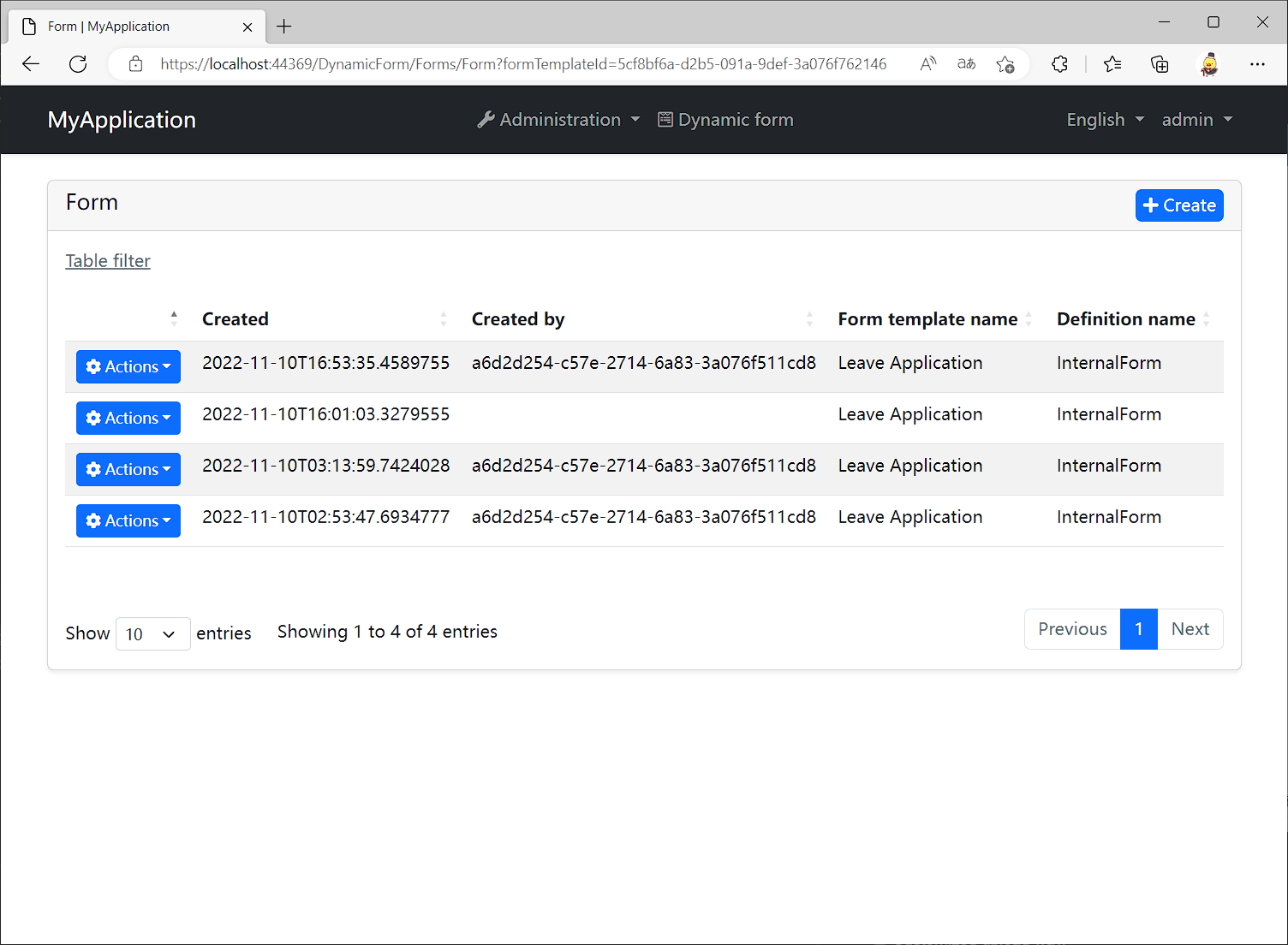# DynamicForm



(opens new window)

An ABP module helps users to define and use dynamic forms at runtime.
# Installation
Install the following NuGet packages. (see how (opens new window))
- EasyAbp.DynamicForm.Application
- EasyAbp.DynamicForm.Application.Contracts
- EasyAbp.DynamicForm.Domain
- EasyAbp.DynamicForm.Domain.Shared
- EasyAbp.DynamicForm.EntityFrameworkCore
- EasyAbp.DynamicForm.HttpApi
- EasyAbp.DynamicForm.HttpApi.Client
- EasyAbp.DynamicForm.Web
Add
DependsOn(typeof(DynamicFormXxxModule))attribute to configure the module dependencies. (see how (opens new window))Add
builder.ConfigureDynamicForm();to theOnModelCreating()method in MyProjectMigrationsDbContext.cs.Add EF Core migrations and update your database. See: ABP document (opens new window).
# Usage
Configure the module.
Configure<DynamicFormOptions>(options => { options.AddOrUpdateFormDefinition(new FormDefinition("InternalForm", "Internal Form")); }); Configure<DynamicFormCoreOptions>(options => { options.AddTextBoxFormItemType(); options.AddOptionButtonsFormItemType(); // Add any type you want, including your custom types.... });(Optional) Create a custom
FormTemplateOperationAuthorizationHandlerto determine who can create/read/update/delete the form templates. ( see sample (opens new window)) Users who haveEasyAbp.DynamicForm.FormTemplate.Managepermission can skip the check.(Optional) Create a custom
FormOperationAuthorizationHandlerto determine who can create/read/update/delete the forms. ( see sample (opens new window)) Users who haveEasyAbp.DynamicForm.Form.Managepermission can skip the check.Try to create a form template.
Try to create a form.




# Use the Dynamic Form Core Only
This way, we don't install the whole dynamic form module (no extra entities installed). Instead, we enhance the existing entities to support the dynamic forms feature.
Install only the following modules:
- EasyAbp.DynamicForm.Domain.Core
- EasyAbp.DynamicForm.Domain.Shared
- EasyAbp.DynamicForm.EntityFrameworkCore.Shared
Make your entities contain the form item information.
public class BookRental : AggregateRoot<Guid> { public string BookName { get; set; } public List<BookRentalFormItem> FormItems { get; set; } = new(); } public class BookRentalFormItem : Entity, IFormItemTemplate { // properties... }public class BookRentalRequest : AggregateRoot<Guid> { public Guid BookRentalId { get; set; } public Guid RenterUserId { get; set; } public List<BookRentalRequestFormItem> FormItems { get; set; } = new(); } public class BookRentalRequestFormItem : Entity, IFormItem // implement IFormItemMetadata if need { // properties... }protected override void OnModelCreating(ModelBuilder builder) { // ... builder.Entity<BookRentalFormItem>(b => { b.ToTable(MyProjectConsts.DbTablePrefix + "BookRentalFormItems", MyProjectConsts.DbSchema); b.TryConfigureAvailableValues(); // add this configuration. b.ConfigureByConvention(); b.HasKey(x => new { x.BookRentalId, x.Name }); }); }Validate when changing the form item templates.
await dynamicFormValidator.ValidateTemplatesAsync(bookRental.FormItems);Validate when changing the form items.
await dynamicFormValidator.ValidateValuesAsync(bookRental.FormItems, bookRentalRequest.FormItems);
# Roadmap
- [ ] Number input form item type.
- [ ] Checkbox form item type.
- [ ] Date picker form item type.
- [ ] Listbox form item type.
- [ ] Drop-down listbox form item type.
